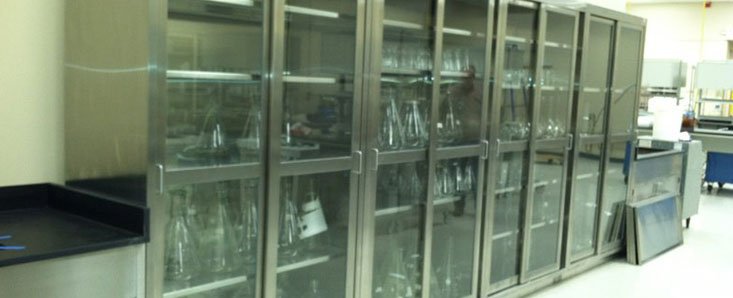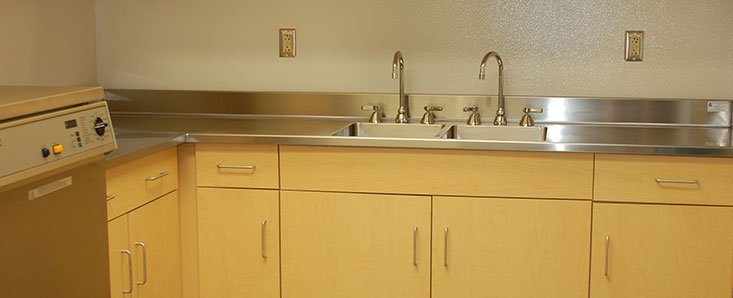Top requirements when choosing surface materials for laboratory use
01.27.2020

It’s no secret that stainless steel is one of the most useful materials for laboratory settings. This is due to its corrosion resistance, high strength,
and malleability. While it’s important to be aware of these benefits, it’s just as crucial to know about the different kinds of stainless steel. With
that in mind, here’s a look at three types of this versatile metal:
Type 304
This is used for storing and containing all types of non-corrosive substances, including mild chemicals and food and dairy products.
Type 316
This metal contains an alloy called molybdenum that gives it enhanced corrosion resistance properties. It’s a good choice for chemical processing facilities,
photography equipment, and any environment exposed to saltwater or other corrosive compounds.
Type 316L
This material is ideal for welding. It contains less carbon than other types of stainless steel, enabling strong, clean welds, enhanced durability, and
overall superior quality.
Caring for Stainless Steel Products
One of the great advantages of stainless steel is how easy it is to maintain. Here are some tips for keeping your stainless products looking and working
their best:
- Use only non-abrasive tools like plastic scouring pads and soft cleaning cloths. You may also use stainless steel scrubbing pans, so long as you scrub
in the direction of the polishing lines, also known as the grain. - Use chloride-free, alkaline, or alkaline chlorinated cleaners when maintaining stainless steel products. If you’re unsure whether or not your cleaning
products contain chloride, then contact the manufacturer or distributor. - Avoid using products containing quaternary salts, HCl, or other corrosives on stainless steel.
- Clean your stainless steel products on a regular basis to avoid stain buildup.
- After cleaning, allow stainless steel items to air dry. Oxygen helps maintain stainless steel’s protective qualities.
- If possible, use soft water for cleaning stainless steel.
With its durability, flexibility, and low maintenance requirements, stainless steel is perfect for all types of laboratory applications. To get the most
from this material, however, it’s important to choose the right stainless steel equipment provider. Stainless Fabricators Inc. uses only the finest
grades of steel manufactured to close tolerances by ultra-precise machinery. Our people stay up-to-date on the latest advances in the metal fabrication
industry, and we integrate proven technology into every aspect of the manufacturing process.
For all these reasons and more, you can count on Stainless Fabricators Inc. to provide your organization with world-class products and outstanding customer
service. Contact us today for a free, no-obligation consultation and estimate.













